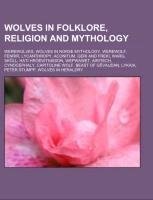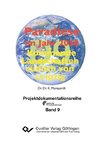
-
 Anglický jazyk
Anglický jazyk
Wolves in folklore, religion and mythology
Autor: Source: Wikipedia
Source: Wikipedia. Pages: 49. Chapters: Werewolves, Wolves in Norse mythology, Werewolf, Fenrir, Lycanthropy, Aconitum, Geri and Freki, Warg, Sköll, Hati Hróðvitnisson, Wepwawet, Airitech, Cynocephaly, Capitoline Wolf, Beast of Gévaudan, Lykaia, Peter Stumpp,... Viac o knihe
Na objednávku, dodanie 2-4 týždne
15.75 €
bežná cena: 17.90 €
O knihe
Source: Wikipedia. Pages: 49. Chapters: Werewolves, Wolves in Norse mythology, Werewolf, Fenrir, Lycanthropy, Aconitum, Geri and Freki, Warg, Sköll, Hati Hróðvitnisson, Wepwawet, Airitech, Cynocephaly, Capitoline Wolf, Beast of Gévaudan, Lykaia, Peter Stumpp, Wolves in heraldry, Valais witch trials, Clinical lycanthropy, Rougarou, Werewolf witch trials, Wolf of Gubbio, Buda, The Boy Who Cried Wolf, Beast of Bray Road, Asena, Lycaon, Gilles Garnier, Chechen wolf, Man into Wolf, Agriopas, Vârcolac, MacQueen of Pall à Chrocain, Pricolici, Wulver, The Boy and the Wolves, Damarchus, Marchosias, Amarok, Mánagarmr. Excerpt: A werewolf, also known as a lycanthrope (from the Greek ¿¿¿¿¿¿¿¿p¿¿: ¿¿¿¿¿, lukos, "wolf", and ¿¿¿¿¿p¿¿, anthropos, man), is a mythological or folkloric human with the ability to shapeshift into a wolf or an anthropomorphic wolf-like creature, either purposely, by being bitten by another werewolf, or after being placed under a curse. This transformation is often associated with the appearance of the full moon, as popularly noted by the medieval chronicler Gervase of Tilbury, and perhaps in earlier times among the ancient Greeks through the writings of Petronius. Werewolves are often attributed superhuman strength and senses, far beyond those of both wolves and men. The werewolf is generally held as a European character, although its lore spread through the world in later times. Shape-shifters, similar to werewolves, are common in tales from all over the world, most notably amongst the Native Americans, though most of them involve animal forms other than wolves. Werewolves are a frequent subject of modern fictional books, although fictional werewolves have been attributed traits distinct from those of original folklore, most notably vulnerability to silver bullets. Werewolves continue to endure in modern culture and fiction, with books, films and television shows cementing the werewolf's stance as a dominant figure in horror. The word werewolf is thought to derive from Old English wer (or were)- pronounced variously as - and wulf. The first part, wer, translates as "man" (in the specific sense of male human, not the race of humanity generally). It has cognates in several Germanic languages including Gothic wair, Old High German wer, and Old Norse verr, as well as in other Indo-European languages, such as Sanskrit 'vira', Latin vir, Irish fear, Lithuanian vyras, and Welsh gwr, which have the same meaning. The second half, wulf, is the ancestor of modern English "wolf"; in some cases it also had the general meaning "beast." An alternative etymology derives the first pa
- Vydavateľstvo: Books LLC, Reference Series
- Rok vydania: 2018
- Formát: Paperback
- Rozmer: 246 x 189 mm
- Jazyk: Anglický jazyk
- ISBN: 9781156670682


 Nemecký jazyk
Nemecký jazyk 








